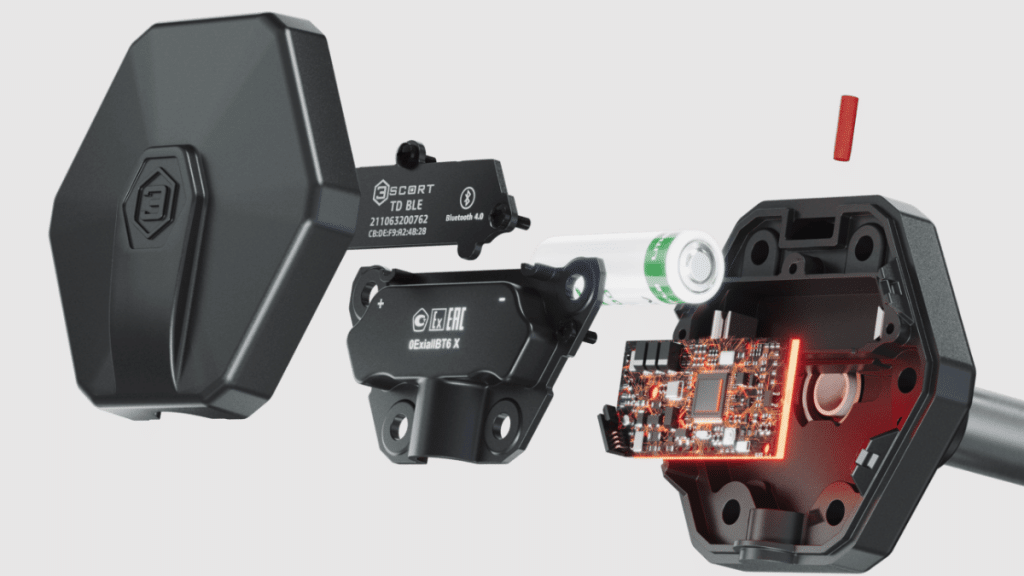Fuel level sensors are crucial elements in recent cars and machines. These devices help to track fuel levels, improve efficiency, and enhance overall functionality. We are going to discuss why fuel level sensors are important and how they are changing the automotive industry as well as the industrial sector.
Basics of Fuel Level Sensors
The fuel level sensors are electronic devices that measure the quantity of fuel in a vehicle or an oil storage tank. These use various technologies for instance ultrasonic, resistive, capacitive, and conductive to accurately determine fuel levels. Notably, wireless fuel level sensor is one of the most remarkable progressions made in this area having transformed our way of monitoring fuels remotely through systems that can send signals without physical attachments. These types have embraced wireless communication protocols, for instance, Bluetooth or Wi-Fi. These protocols facilitate the real-time relay of data concerning current fuel levels to control stations or mobile gadgets, thus simplifying the means of accessing fuels when required where necessary.
The Evolution of Fuel Level Sensors
Significant improvements have been witnessed in the design and functioning of fuel level sensors over time. Early ones used simple mechanisms which were prone to faults. However, modern sensors utilize sophisticated technology and algorithms to provide precise readings in real-time.
Benefits of Fuel Level Sensors
Fuel level sensors have several advantages that are closely related to their diverse applications. Optimization of fuel efficiency, cost reduction, safety promotion and environmental impact mitigation make them important in all industries. These discuss the benefits of having a fuel level sensor in a fuel management system.
1. Optimization Efficiency
Fuel levels can be measured accurately using fuel level sensors which enable efficient use of fuel. In this regard, they help avoid wasteful resource utilisation by machines or vehicles, hence saving energy. Fuel level sensors are integrated with advanced fuel management systems that allow firms to monitor consumption trends and identify inefficient areas for bettering their policies toward reduced fuel consumption. Such practices save money and lower greenhouse gas emissions by avoiding unnecessary burning of fuels.
2. Economical Use
Businesses and individuals alike save huge amounts of money with these sensors since they ensure optimum utilisation of the consumed fuel. Properly managed fuel systems minimize refueling frequencies, reduce theft or pilferage of diesel products and alleviate chances of running out of gas unknowingly. Moreover, by detecting fuel leaks or irregularities in fuel levels promptly, these sensors help prevent costly damages and maintenance issues, further enhancing cost-effectiveness.
3. Enhanced Safety
This makes it possible to monitor the fuel level accurately, hence preventing unexpected fuel shortages or overfills. For example, in sectors such as transportation and logistics where timely fueling is critical for operations, fuel level sensors give real-time data that enables proactive planning and prevents disruptions. This is very important, especially in emergency services when the location is remote and has less access to fuel stations thereby ensuring a continuous provision of services without compromising on safety.
4. Environmental Impact
Fuel level sensors enable efficient fuel management that reduces environmental effects. Eco-friendly practices are promoted as these sensors minimize the wastage of gasoline and optimize its use. Consequently, minimal emissions of pollutants and greenhouse gases result from using less fuel; this helps in keeping the environment safe while adhering to the stipulated laws. Besides detecting them at an early stage, fuel level sensors also help prevent soil and water contamination through oil spills among other risks associated with fuels.
Appliances of Fuel Level Sensors
There is a wide array of uses that fuel level sensors can be put into in various industries such as:
- Car Industry: People driving vehicles with fuel tanks having integrated fuel level sensors can know the quantity of gas currently available. This helps drivers to perform timely refuelling and avoid any issues relating to the petrol.
- Aerospace: These gadgets play an important role within aeroplanes by accurately measuring liquid levels throughout their flights. Consequently, they can enhance operational efficiency and ensure safety while flying.
- Marine Engineering and Shipping: Marine vessel fuel tank level sensors facilitate real-time monitoring of vessel fuel contents for economic consumption over long distances.
- Industrial Machinery: In factories, these tools observe various machines for how they consume energy; thereby saving machines from running out of power and improving productivity.
Future Trends in Fuel Level Sensors
The future of fuel-level sensors is being characterized by continuing innovation and improvement. These developments will lead to better performance optimization as new technologies like integrating the Internet of Things (IoT), wireless communication, and predictive analytics among others strengthen the capabilities of these devices.
Conclusion
The automotive, aerospace and industrial sectors are being revolutionized by fuel-level sensors. They are more valuable in today’s technology world because they give accurate fuel levels, increase efficiency, decrease costs and improve safety. As these sensors advance their effect on fuel management and general operations will only grow deeper.
